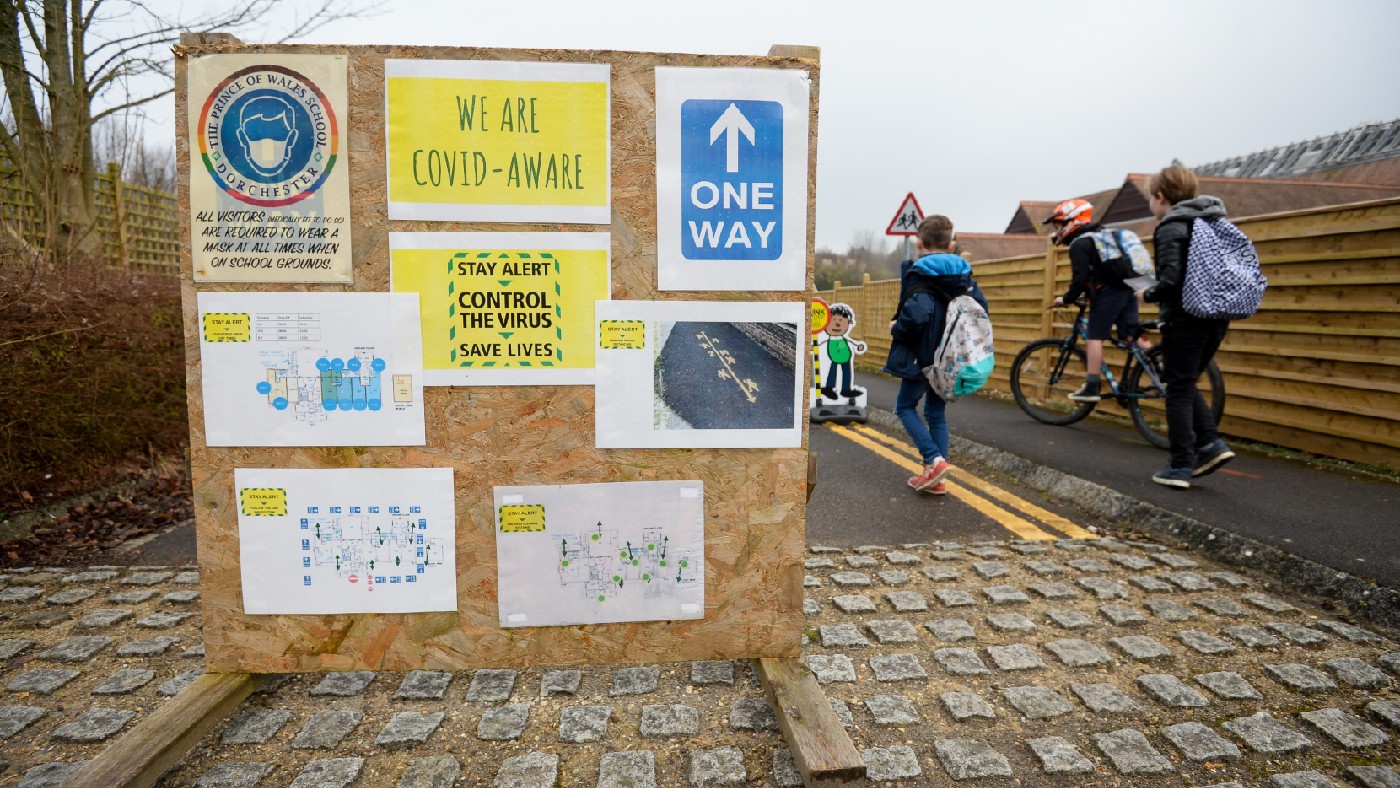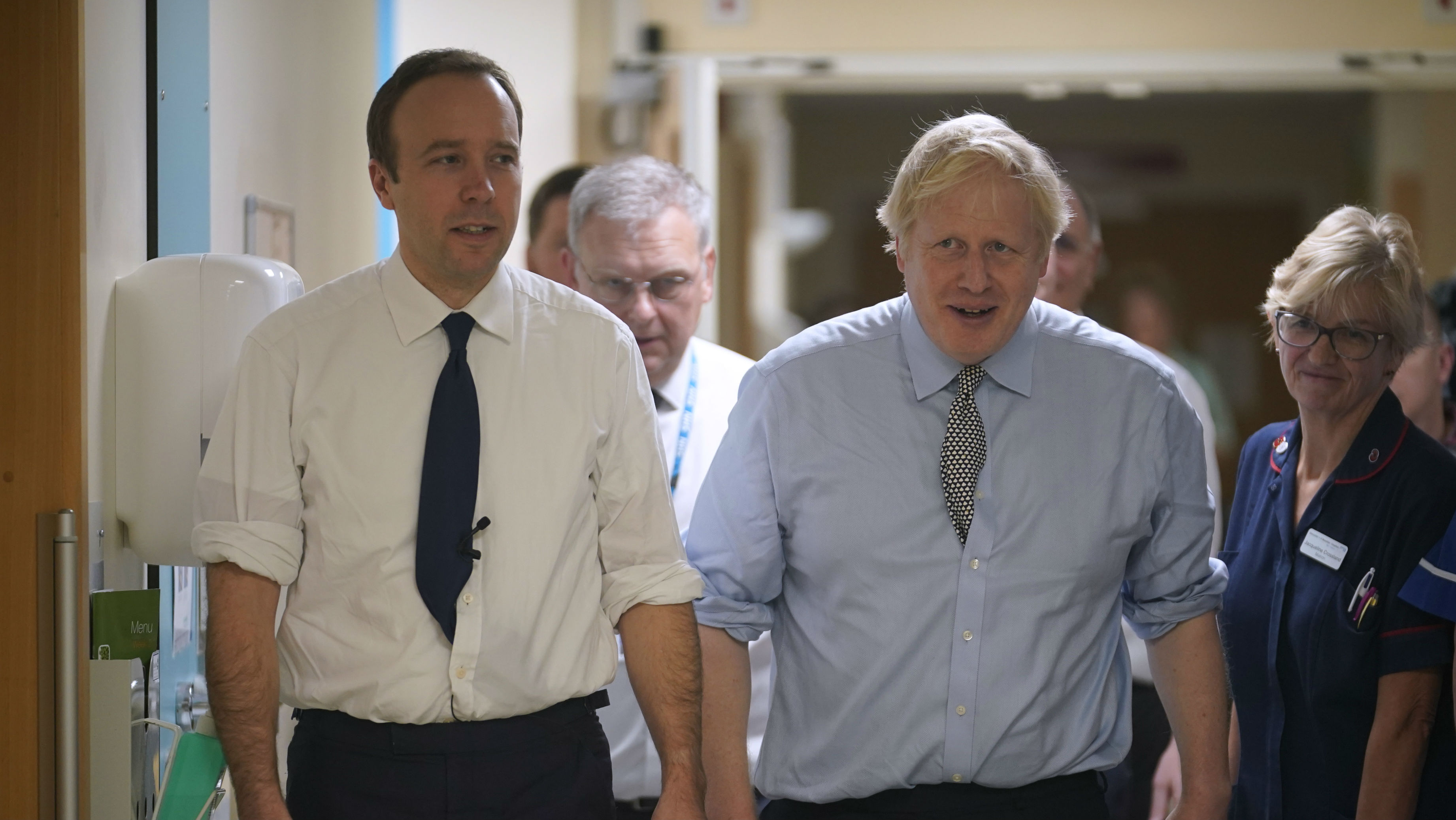One in six Britons will live to 100
Government announces £300m scheme to deal with ageing population

A free daily email with the biggest news stories of the day – and the best features from TheWeek.com
You are now subscribed
Your newsletter sign-up was successful
One in six Britons alive today will live until they are 100, official figures suggest.
Although there are just 15,000 centenarians in the UK today, “the population aged 90 and over has grown more rapidly than other age groups in recent years - with one in six Britons now expected to reach triple figures”, says Sky News.
Around 10 million people currently alive today are expected to reach their centenary.
The Week
Escape your echo chamber. Get the facts behind the news, plus analysis from multiple perspectives.

Sign up for The Week's Free Newsletters
From our morning news briefing to a weekly Good News Newsletter, get the best of The Week delivered directly to your inbox.
From our morning news briefing to a weekly Good News Newsletter, get the best of The Week delivered directly to your inbox.
The latest findings have prompted the Government to earmark more than £300m to develop new technologies to support an ageing population.
In a series of measures announced by the Business Secretary Greg Clark, £210m will go towards the development of early diagnostic tools and innovative treatments. Another £98m will be spent on a ‘healthy ageing programme’ to help people stay in their own homes for longer as they get older.
Under the scheme, half a million volunteers will have their genomes sequenced to assist in developing new tools for early diagnosis while a number of regional centres will use artificial intelligence to work on tracking and finding cures for diseases.
A new £40m dementia hub will be set up in London in partnership with University College London to host 350 leading scientists researching new treatments for the condition.
A free daily email with the biggest news stories of the day – and the best features from TheWeek.com
Clark has set a goal of being the best country in the world for dementia care by 2020, and said investment in new technologies will “revolutionise the way we age and provide everyone with the best possible chance to grow old with dignity in their own home”.
Caroline Dinenage, minister for care, said the challenges of an increasing ageing population meant it was necessary to “transform the way we think about our work, our housing, our health our finances and our communities”.
-
 Political cartoons for February 15
Political cartoons for February 15Cartoons Sunday's political cartoons include political ventriloquism, Europe in the middle, and more
-
 The broken water companies failing England and Wales
The broken water companies failing England and WalesExplainer With rising bills, deteriorating river health and a lack of investment, regulators face an uphill battle to stabilise the industry
-
 A thrilling foodie city in northern Japan
A thrilling foodie city in northern JapanThe Week Recommends The food scene here is ‘unspoilt’ and ‘fun’
-
 Neanderthal gene ‘caused up to a million Covid deaths’
Neanderthal gene ‘caused up to a million Covid deaths’Speed Read Genetic tweak found in one in six Britons means cells in the lungs are slower to launch defences
-
 Legalising assisted dying: a complex, fraught and ‘necessary’ debate
Legalising assisted dying: a complex, fraught and ‘necessary’ debateSpeed Read The Assisted Dying Bill – which would allow doctors to assist in the deaths of terminally ill patients – has relevance for ‘millions’
-
 Vaccinating children: it’s decision time for the health secretary as kids return to school
Vaccinating children: it’s decision time for the health secretary as kids return to schoolSpeed Read Sajid Javid readying NHS England to roll out jab for children over 12, amid fears infections will rocket
-
 ‘Vaccination blunts, but does not defeat’: exploring Israel’s fourth Covid wave
‘Vaccination blunts, but does not defeat’: exploring Israel’s fourth Covid waveSpeed Read Two months ago, face masks were consigned to bins. Now the country is in a ‘unique moment of epidemiological doubt’
-
 Thousands told to self-isolate in Covid app pinging error, claims Whitehall whistleblower
Thousands told to self-isolate in Covid app pinging error, claims Whitehall whistleblowerSpeed Read Source says Matt Hancock was privately told of the issue shortly before he resigned as health secretary
-
 Record 5.45m people on NHS England waiting lists
Record 5.45m people on NHS England waiting listsSpeed Read Health chief warns that crisis is nearing ‘boiling point’ as backlog grows
-
 Covid testing: the ‘great new game of holiday roulette’
Covid testing: the ‘great new game of holiday roulette’Speed Read On one day last week, the price of a private PCR test ranged from £23.99 to £575
-
 San Marino is first European country to offer ‘vaccine vacation’
San Marino is first European country to offer ‘vaccine vacation’Speed Read Tiny landlocked nation to give Russian Sputnik vaccine to paying tourists